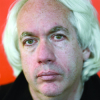Leon Wieseltier

Leon Wieseltier
Leon Wieseltieris an American writer, critic, amateur philosopher and magazine editor. From 1983 to 2014, he was the literary editor of The New Republic. He is currently the Isaiah Berlin Senior Fellow in Culture and Policy at the Brookings Institution and a contributing editor and critic at The Atlantic...
NationalityAmerican
ProfessionPhilosopher
Date of Birth14 June 1952
CountryUnited States of America
ability admire known manipulate somebody talent
Why should I admire somebody for his ability to manipulate me? In other realms of life, this talent is known as demagoguery.
spending
I was not interested in spending 10 years in the culture wars.
media money
Incorruptibility by money is the old story, ... Now it's incorruptibility by media.
call effort likes man meant nice personnel sort summon
The effort was to summon to the bosoms of her personnel the sort of man that Barrows likes to call "nice." Nice meant rich.
sex book giving
Her book about the money in sex gives you the feeling of the sex in money.
beautiful wall block
But even now, with the crates piled high in the hall, what I see most plainly about the books is that they are beautiful. They take up room? Of course they do: they are an environment; atoms, not bits. My books are not dead weight, they are live weight — matter infused by spirit, every one of them, even the silliest. They do not block the horizon; they draw it. They free me from the prison of contemporaneity: one should not live only in one’s own time. A wall of books is a wall of windows.
thinking two said
I hear it said of somebody that he is leading a double life. I think to myself: Just two?
religious people moral
There are moral religious people and moral secular people, immoral religious people and immoral secular people.
Dilettantism is the sort of thing one must avoid.
morality values
I do not value religion chiefly for its morality.
technology use purpose
Use the new technologies for the old purposes.
money media stories
Incorruptibility by money is the old story... Now it's incorruptibility by media.
commitment what-matters obsession
What matters to me is that one identifies one's genuine obsessions, one's genuine commitments, one's genuine appetites, one pursues them seriously and far.
book philosophical reflection
Philip Kitcher has composed the most formidable defense of the secular view of life since Dewey. Unlike almost all of contemporary atheism, Life After Faith is utterly devoid of cartoons and caricatures of religion. It is, instead, a sober and soulful book, an exemplary practice of philosophical reflection. Scrupulous in its argument, elegant in its style, humane in its spirit, it is animated by a stirring aspiration to wisdom. Even as I quarrel with it I admire it.